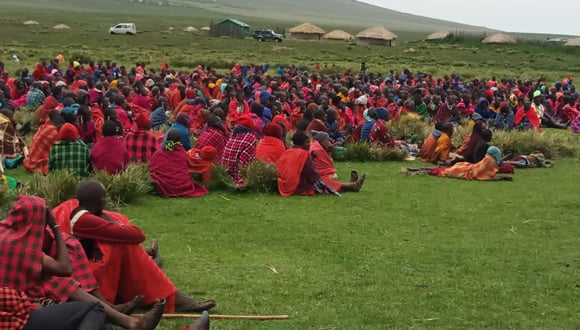
© oaklandinstitute.org
Tanzania’s government is forcibly relocating tens of thousands of Maasai from their ancestral lands in the Ngorongoro Conservation Area (NCA), according to a new report by Human Rights Watch (HRW). The report, titled “It’s Like Killing Culture,” details the severe impacts of this relocation on the Maasai community, who have lived in the NCA for generations.
HRW’s 86-page report highlights that the Tanzanian government began a program in 2022 to move over 82,000 people to Msomera village, located about 600 kilometers away. The relocation is purportedly for conservation and tourism purposes. However, HRW argues that this move violates the rights of the Maasai, who have not given their free, prior, and informed consent to the resettlement plan.
Since 2021, essential public services such as schools and health centers in the NCA have been significantly reduced. This, combined with restricted access to cultural sites, grazing areas, and a ban on growing crops, has made life increasingly difficult for the Maasai, forcing many to relocate.
HRW interviewed nearly 100 people, including current and former NCA residents and those already living in Msomera. These interviews revealed numerous rights violations, including inadequate housing, lack of compensation, and restricted movement. Residents report being harassed and beaten by government rangers, with 13 such incidents documented between September 2022 and July 2023.
The relocation process has also reinforced gender inequality, as families registered for relocation are typically represented by male heads of households. This leaves women who choose to stay behind homeless and dependent on extended family.
HRW’s findings have drawn international criticism, with organizations like the World Bank and the European Union suspending funding for Tanzanian conservation efforts. The report underscores the need for the Tanzanian government to halt these forced relocations and to respect the rights and dignity of the Maasai people through genuine consultation and consent.
“The Maasai are being forcibly evicted under the guise of voluntary relocation,” said Juliana Nnoko, HRW senior researcher on women and land. “The government should urgently reconsider its approach to ensure the survival, well-being, and dignity of the Maasai people.”
Read the full report by Human Rights Watch here:






